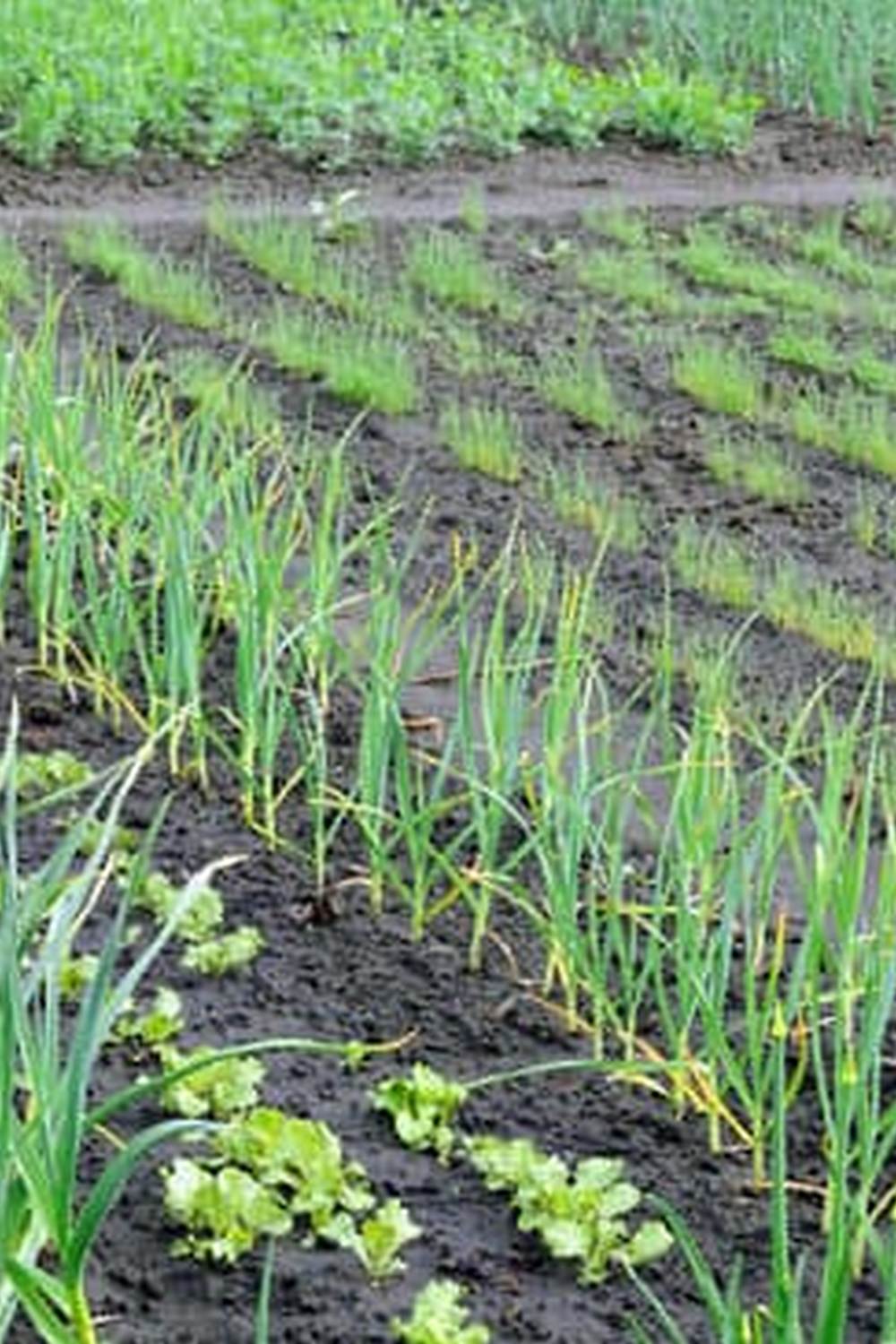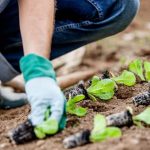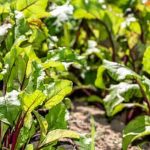Weed prevention for vegetable gardens is crucial in maintaining a healthy and productive growing environment. Unwanted weeds compete with your vegetable plants for nutrients, water, and sunlight, ultimately affecting their growth and yield. Understanding the importance of implementing effective weed prevention techniques is essential for successful gardening.
Weeds are relentless invaders that can quickly take over a vegetable garden if left unchecked. Common types such as dandelions, crabgrass, and bindweed can spread rapidly and become difficult to eradicate once established. These invasive plants not only detract from the aesthetics of your garden but also pose a threat to the health of your precious vegetable crops.
The negative impact of weeds on vegetable crops goes beyond mere competition for resources. Weeds can harbor pests and diseases that may infect your plants, leading to reduced harvests or even total crop loss. Additionally, some weeds release chemicals that inhibit the growth of nearby plants, further hampering the development of your vegetables. By prioritizing weed prevention in your vegetable garden, you can protect your crops from these potential threats and ensure a bountiful harvest.
Common Types of Weeds That Invade Vegetable Gardens
Weeds are a common nuisance in vegetable gardens and can quickly take over if not properly managed. There are several types of weeds that gardeners should be aware of, each with its own characteristics and methods of spreading. One common type of weed that invades vegetable gardens is the dandelion.
Dandelions have deep roots that make them difficult to remove completely, and their fluffy seeds can easily spread to other parts of the garden. Another common weed is crabgrass, which can quickly smother young vegetable plants and compete for essential nutrients in the soil.
Aside from dandelions and crabgrass, chickweed is another prevalent weed in vegetable gardens. Chickweed grows rapidly and forms dense mats that can hinder the growth of vegetable crops. Its ability to thrive in both sunny and shady areas makes it a versatile and challenging weed to control.
Additionally, purslane is a weed commonly found in vegetable gardens that can quickly take over if left unchecked. Purslane has succulent leaves and spreads through both seeds and stem cuttings, making it crucial to prevent its growth early on.
Understanding the characteristics and growth habits of these common weeds is essential for effective weed prevention in vegetable gardens. By identifying these invaders early on and implementing appropriate strategies to control their spread, gardeners can maintain a healthy environment for their vegetable crops to thrive. Whether through organic methods like mulching or using chemical options sparingly, taking proactive steps to prevent weeds will ultimately lead to a more successful harvest at the end of the growing season.
The Negative Impact of Weeds on Vegetable Crops
Weeds are not just unsightly in vegetable gardens; they can also wreak havoc on the health and productivity of your crops. These invasive plants compete with your vegetables for essential resources like water, sunlight, and nutrients. As a result, weeds can stunt the growth of your plants and even cause deformities in the vegetables themselves. Some common types of weeds that you may encounter in your vegetable garden include:
- Dandelions
- Crabgrass
- Chickweed
- Bindweed
- Pigweed
When left unchecked, these weeds can quickly take over your garden, making it harder for your vegetable crops to thrive. In addition to competing with your plants for resources, weeds can also harbor pests and diseases that can spread to your vegetables. This can lead to decreased yields and lower quality produce.
To combat the negative impact of weeds on your vegetable crops, implementing effective weed prevention strategies is essential. By keeping weed growth under control, you can help ensure that your vegetables have the best chance at flourishing. Whether you choose organic methods like mulching or chemical options like herbicides, taking proactive steps to prevent weeds in your garden will pay off in healthier plants and bountiful harvests.
Benefits of Weed Prevention Techniques for Vegetable Gardens
Increased Crop Yield
One of the significant benefits of implementing weed prevention techniques in vegetable gardens is the potential for increased crop yield. Weeds compete with vegetable plants for essential nutrients, water, and sunlight, which can hinder the growth and development of the crops. By keeping weeds at bay, vegetable plants can thrive without interference, resulting in a higher yield of fresh produce for harvest.
Improved Plant Health
Weeds not only compete with vegetable plants for resources but also serve as hosts for pests and diseases that can harm the crops. By preventing weeds from taking over the garden, you are also reducing the risk of pests and diseases impacting your vegetable plants. This leads to improved plant health and longevity, allowing your vegetables to reach their full potential in terms of flavor and nutrient content.
Enhanced Aesthetic Appeal
In addition to the practical benefits of weed prevention, maintaining a weed-free vegetable garden also enhances its aesthetic appeal. Weeds can make a garden look unkempt and overgrown, detracting from its overall beauty. By keeping weeds under control through prevention techniques, you can create a visually pleasing environment where your vegetable crops stand out and flourish. This not only makes the gardening experience more enjoyable but also adds to the overall attractiveness of your outdoor space.
Organic Ways to Prevent Weeds in Vegetable Gardens
When it comes to maintaining a healthy and productive vegetable garden, preventing weeds is essential. Not only do weeds compete with your vegetables for nutrients and water, but they can also harbor pests and diseases that can harm your crops. Implementing organic weed prevention techniques not only protects the environment but also ensures the safety of your homegrown produce for you and your family to enjoy.
Here are some effective organic ways to prevent weeds in your vegetable garden:
- Mulching: Covering the soil around your plants with mulch helps suppress weed growth by blocking sunlight and preventing weed seeds from germinating. Organic mulches like straw, grass clippings, or shredded leaves can not only inhibit weed growth but also improve soil health.
- Hand weeding: Regularly inspecting your vegetable garden and manually removing weeds by hand is a simple yet effective way to control weed populations. Be sure to pull up the entire weed, including its roots, to prevent regrowth.
- Planting cover crops: Cover crops like clover or buckwheat can help smother weeds by outcompeting them for resources while simultaneously adding nutrients back into the soil when they are eventually turned under.
By incorporating these organic weed prevention methods into your gardening routine, you can maintain a healthy and vibrant vegetable garden without relying on harmful chemicals. Remember that consistency is key when it comes to keeping weeds at bay, so make sure to stay proactive in your approach to weed prevention for long-term success.
Chemical Options for Weed Prevention in Vegetable Gardens
Types of Chemical Weed Control
When it comes to weed prevention in vegetable gardens, chemical options can be effective in minimizing weed growth. There are various types of chemical weed control products available on the market, including pre-emergent herbicides, post-emergent herbicides, and selective herbicides. Pre-emergent herbicides work by preventing weed seeds from germinating, while post-emergent herbicides target weeds that have already sprouted. Selective herbicides are designed to target specific types of weeds without harming your vegetable crops.
Considerations for Using Chemical Weed Control
Before using chemical options for weed prevention in your vegetable garden, it is important to consider a few key factors. First and foremost, always read and follow the instructions on the product label carefully to ensure safe and effective application.
It is also crucial to choose the right type of herbicide based on the specific weeds you are dealing with in your garden. Additionally, take into account factors such as weather conditions, timing of application, and potential impact on beneficial insects when using chemical weed control methods.
Tips for Safe and Effective Use
To maximize the effectiveness of chemical options for weed prevention in vegetable gardens while minimizing any negative impact on the environment, there are some tips to keep in mind. Avoid over-applying herbicides, as this can harm both your vegetable crops and the surrounding ecosystem.
It is also recommended to spot-treat weeds rather than blanket spraying to reduce unnecessary chemical usage. Finally, consider integrating chemical weed control with other organic or mechanical methods to create a comprehensive weed prevention strategy for your vegetable garden.
Step-by-Step Guide to Implementing Weed Prevention Strategies in Your Vegetable Garden
Weed prevention is a crucial aspect of maintaining a healthy and flourishing vegetable garden. By taking proactive steps to prevent weeds from infiltrating your garden, you can ensure that your vegetable crops have the best chance to thrive and produce bountiful yields. Implementing effective weed prevention strategies requires diligence and consistency, but the results are well worth the effort.
One of the first steps in implementing weed prevention strategies in your vegetable garden is to start with proper soil preparation. Clear the area of any existing weeds before planting your vegetables, as this will help minimize competition for nutrients and water. Adding a thick layer of mulch or using landscape fabric can also help suppress weed growth by blocking out sunlight and inhibiting weed seed germination.
Another important step in weed prevention for vegetable gardens is practicing regular cultivation and hand weeding. Invest some time each week to inspect your garden beds for any emerging weeds and promptly remove them before they have a chance to take root and spread. Remember that young weeds are easier to pull out than mature ones, so staying on top of weed control will make future maintenance much more manageable.
Consider incorporating companion planting techniques into your garden layout as a natural way to deter weeds from taking over. Certain plants, such as marigolds, can act as natural deterrents to common garden pests and weeds.
Additionally, utilizing cover crops during off-seasons can help smother weeds, improve soil structure, and add valuable organic matter when tilled back into the soil. By following these step-by-step guidelines for implementing weed prevention strategies in your vegetable garden, you can create an environment where your vegetables can thrive without being hindered by pesky weeds.
Tools and Equipment Needed for Effective Weed Prevention in Vegetable Gardens
Weed prevention for vegetable gardens is essential to ensure the health and productivity of your crops. To effectively prevent weeds from taking over your vegetable garden, you will need to have the right tools and equipment on hand. One of the most basic tools for weed prevention is a good quality hoe or hand cultivator. These tools allow you to easily remove weeds from the soil without damaging your vegetable plants.
Another important tool for weed prevention in vegetable gardens is a mulch material such as straw, wood chips, or shredded leaves. Mulching helps suppress weed growth by blocking sunlight and preventing weed seeds from germinating. Additionally, mulch helps retain moisture in the soil, reducing the need for frequent watering and creating a more hospitable environment for your vegetables.
Investing in a high-quality drip irrigation system can also be beneficial for weed prevention in vegetable gardens. Watering directly at the base of your plants through a drip system can help reduce moisture on the soil surface where weed seeds are more likely to sprout. This targeted watering approach not only conserves water but also minimizes weed growth in between rows of vegetables.
| Tools and Equipment | Benefits |
|---|---|
| Hoe or Hand Cultivator | Allows easy removal of weeds without damaging crops |
| Mulch Material | Suppresses weed growth, retains moisture, and creates a favorable environment for vegetables |
| Drip Irrigation System | Reduces moisture on soil surface, conserves water, and minimizes weed growth |
Maintenance Tips for Keeping Weeds at Bay in Vegetable Gardens
Maintaining a vegetable garden free from weeds is essential to ensure the health and productivity of your crops. Weeds compete with vegetables for nutrients, water, and sunlight, which can significantly impact their growth and yield. Implementing effective weed prevention strategies is key to ensuring a bountiful harvest.
One organic way to prevent weeds in your vegetable garden is through the use of mulch. Mulching not only helps to suppress weed growth by blocking out sunlight, but it also helps retain moisture in the soil and regulate its temperature. Organic mulches such as straw, grass clippings, or wood chips can be used to create a barrier against weeds while providing additional benefits to your soil.
Another effective maintenance tip for keeping weeds at bay in vegetable gardens is regular cultivation. Hand weeding or using a hoe to remove weeds when they are small can prevent them from establishing deep roots and spreading rapidly. Cultivating the soil regularly also aerates it, which helps improve water infiltration and nutrient uptake for your vegetable plants.
Implementing a crop rotation plan can also aid in weed prevention for vegetable gardens. Rotating crops annually helps disrupt the life cycle of pests and diseases that may be harbored in the soil. Additionally, rotating crops can help reduce weed pressure as different plant families have varying susceptibility to certain types of weeds. By diversifying the types of vegetables grown in different areas of your garden each season, you can help keep weeds under control while promoting overall soil health.
| Organic Weed Prevention Techniques | Mulching |
|---|---|
| Regular Cultivation | Aerates soil, prevents deep root establishment |
| Crop Rotation | Disrupts pest life cycles, reduces weed pressure |
Conclusion
In conclusion, maintaining a weed-free vegetable garden is essential for the health and productivity of your crops. Weeds can not only compete with your vegetables for nutrients, water, and sunlight but also serve as hosts for pests and diseases that can harm your plants. By understanding the importance of weed prevention in vegetable gardens and implementing appropriate strategies, you can create a thriving and bountiful garden.
Utilizing organic methods such as mulching, hand weeding, or using natural weed barriers like cardboard or newspaper can effectively prevent weeds from taking over your vegetable garden without the use of harmful chemicals. These eco-friendly approaches not only help in controlling weeds but also promote soil health and biodiversity in your garden.
In addition to organic solutions, there are chemical options available for weed prevention in vegetable gardens. However, it is crucial to use these products judiciously and follow instructions carefully to minimize any adverse effects on your plants, soil, or surrounding environment. Ultimately, by regularly implementing maintenance tips and ongoing weed prevention efforts in your vegetable garden, you can enjoy a flourishing harvest of healthy produce throughout the growing season.
Frequently Asked Questions
How Do You Keep Weeds Out of a Vegetable Garden?
Keeping weeds out of a vegetable garden requires a combination of manual removal, mulching, and regular maintenance. Pulling weeds by hand before they have a chance to seed is crucial to prevent them from spreading.
What Is the Best Weed Barrier for Vegetable Gardens?
The best weed barrier for vegetable gardens depends on the specific needs of the garden. Organic options like newspaper or cardboard topped with mulch can be effective in suppressing weeds while still allowing water and nutrients to reach the plants.
What Is the Best Defense Against Weeds in Your Vegetable Garden?
The best defense against weeds in a vegetable garden is to maintain healthy soil and plants. Mulching with organic materials like straw or wood chips can help suppress weed growth while also providing nutrients as it breaks down over time. Regular weeding and monitoring for signs of new growth are also important in keeping weeds at bay.

If you’re looking to get into vegetable gardening, or are just looking for some tips on how to make your current garden better, then you’ve come to the right place! My name is Ethel and I have been gardening for years. In this blog, I’m going to share with you some of my best tips on how to create a successful vegetable garden.





